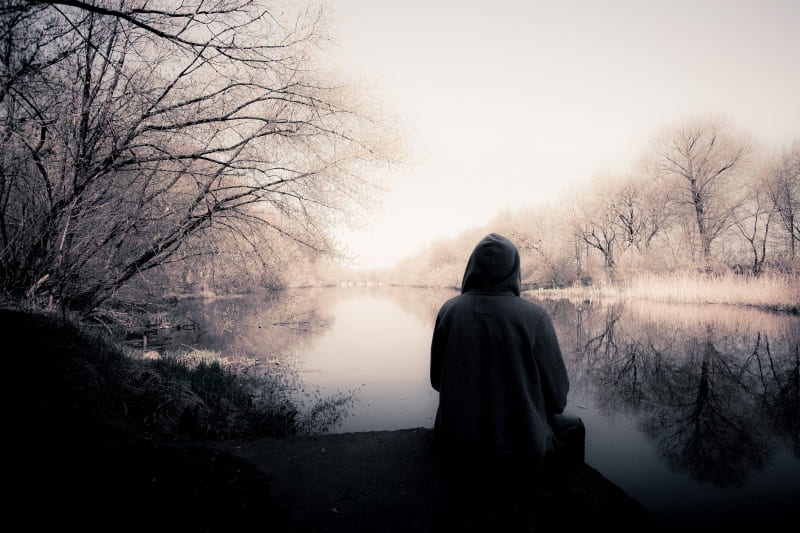
“Many’s the man lost much just because he missed a perfect opportunity to say nothing.”
From An Cailín Ciúin/The Quiet Girl, based on the novella Foster by Claire Keegan
My personal relationship with silence is complicated. For many years in what was otherwise a happy childhood, I dealt with an overwhelming shyness. I have many memories of desperately wanting to speak but being unable to, whether I was speaking to individuals or groups, even if those people were familiar. This affected my academics, my extracurricular activities and participation, and my relationships with others.
The person I was then could never imagine that I would go on to several careers (law, preaching, and teaching) that would all require frequent public speaking and encounters with new people. I was able to overcome a paralyzing shyness by facing those fears directly and ultimately by having a profound love for my faith, for teaching, and for people. The process of learning to speak has given me two important gifts: the ability to speak up when it is beneficial, but also the ability to choose silence. Choosing to be silent is much different than being unable or afraid to speak, or not being allowed to speak. There is a power in chosen silence.
Many of us are invested in our ability to speak because it provides us with our sense of worth. Being able to speak on demand and having the answers can make us feel special. Indeed, I consider these profound gifts. But I’ve also had to learn to be secure enough to choose silence. To admit when I don’t have the answers. A famous story about the early Muslim scholar Imam Malik b. Anas (711–795 CE) describes a man who journeyed for six months to reach Imam Malik so he could ask about a pressing matter on behalf of his people. The great Imam responded to his question (or in some narrations, to his many questions), “I don’t know.” The man asked him, “What shall I tell my people?” The response came, “Tell them that Imam Malik said, ‘I don’t know.’”[1]
When we have wisdom to share or a perspective to contribute, we should do so. That is a precious gift to our community and to our world. We should not, like my younger self, remain silent out of fear. But perhaps we should not speak out of fear either. We should not speak out of insecurity or the need to say something. Perhaps we can recognize the power of chosen silence. One of the insights of Blessed Frédéric Ozanam was that those who want good for the marginalized must sometimes take a break from lecturing and listen instead: “The knowledge of social well-being and reform is to be learned, not from books, nor from the public platform, but in climbing the stairs to the poor man’s garret, sitting by his bedside, feeling the same cold that pierces him, sharing the secret of his lonely heart and troubled mind.”[2]
The benefits that flow from chosen silence are many. There is a humility in silence, especially in the face of questions. The theologian Ruben Rosario Rodriguez recently visited DePaul and spoke about how the humility to admit what we don’t know or even cannot know can be a key entry point to gaining the trust of those who are a bit cynical about arrogant claims to have all the answers.[3] The humility of chosen silence allows us to listen. To listen to others, to colleagues, to students, to those who have experiences different from our own. To listen to the internal voice of one’s heart. To listen to the signs of creation or to the divine call of Providence.
We often fill silence with noise. Perhaps we do so out of anxiety, but this only leads us to be more anxious and unsettled than ever before. I think of people in the time of Vincent writing a letter and then waiting days, weeks, or longer for a response. We may think we would go out of our minds, but perhaps such a conversation by correspondence would be all the richer for consisting of well-chosen words surrounded by much silence, by much listening and contemplation. Perhaps even when times or our roles may seem to call for (re)action, we can benefit from taking a pause to listen and to reflect, and in a little time, we can find a better way together.
Reflection Questions:
- In your own role at DePaul, what are times when you can benefit from silence? What are times that you need the courage to speak?
- What are the benefits of silence that you have found in your own professional or personal experience? What is the history of your own relationship with silence?
Reflection by: Abdul-Malik Ryan, Assistant Director Religious Diversity and Pastoral Care and Muslim Chaplain.
[1] Jāmi’ Bayān al-‘Ilm 2/838 as quoted in Abu Amina Elias, “Malik on Knowledge: When to Say I Do Not Know,” at: https://www.abuaminaelias.com/dailyhadithonline/2021/08/06/malik-i-do-not-know/.
[2] Attributed to Ozanam in His Correspondence by Right Reverend Monsignor Louis Baunard. See, Raymond L. Sickinger, Antoine Frédéric Ozanam (Notre Dame Press, 2017), p. 235.
[3] His recent book is Theological Fragments: Confessing What We Know and Cannot Know About an Infinite God (Westminster John Knox Press, 2023), 262 pp.